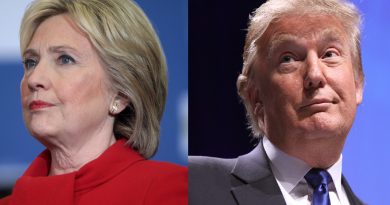Reactions to Fidel Castro’s death and the future of US-Cuba Relations
The Cuban Thaw
The 1959 Cuban Revolution, the CIA-backed Bay of Pigs Invasion 2 years later, and the Cuban missile crisis in 1962 could be seen as the three main events that determined the course of USA-Cuban relations for more than half a century. This course was characterized by Cuban isolation towards the United States and by a North-American commercial and financial embargo against the Caribbean state. These strained relations did not change even after the fall of the Soviet Union, and eventually the American embargo on Cuba was strengthened under Bill Clinton’s presidential mandate. Nonetheless, after Fidel Castro’s gradual stepping down from Cuban politics and the begin of Barak Obama’s mandate, the relations between the two countries tended towards an effort of normalization that, quite unexpectedly, was at first formalized by a declaration by US President Obama and Cuban President Raúl Castro on December, 17 2014. Even though the USA are still keeping an embargo on the Caribbean island, the path towards full normalization of the diplomatic relations between the two countries has begun. Nonetheless, the end of Obama’s mandate, the rise of Donald Trump, and the death of Fidel Castro could be a break on this path.
Mixed reactions on Castro’s death
In this context, the death of Fidel Castro rose a mixture of reactions from all over the world. On the one side, the role in XX Century history of the líder máximo was widely recognized; on the other hand, Castro’s political orientation revealed to be extremely divisive even after his death, especially in the United States. In fact, after Castro’s death, while a wave of condolences rose from all over the world, in the United States several prominent politicians and public figures released declarations rejoicing the death of the ‘dictator’.
In this sense, official statements by President-elect Donald Trump on Castro’s death are consistent with the powerful, aggressive narrative that Trump adopted during the presidential campaign. After a tweet stating Castro’s death, Trump released a statement in which he rejoiced the death of the Cuban leader and depicted him as a brutal dictator and oppressor. In the same statement, the President-elect emphasised that his administration “will do all it can to ensure the Cuban people can finally begin their journey toward prosperity and liberty”. Finally, Trump confirmed his standing with the Cuban-American that supported him in the presidential campaign “with the hope of one day soon seeing a free Cuba”.
In another tweet, the next Vice-President Mike Pence cheered at the death of ‘the tyrant’ Castro; the declarations of the current Speaker of the USA House of Representatives, Paul Ryan, are in line with Trump’s and Pence’s. Texan Senator Ted Cruz, son of a Cuban refugee, during an interview at ABC News used harsh words against Fidel Castro and his regime, and accused the Obama administration of having strengthened the Cuban regime through a weak foreign policy. In general terms, several GOP representatives cheered at Castro’s death and criticized the ‘leftist’ praise for Castro’s death.
On the Democrat side, the adopted narrative is quite different, but still oriented towards cautious declarations. Barak Obama’s official statement on Castro’s death seems at least customary towards the líder máximo. Nonetheless, it’s interesting to notice that the statement refers directly to Castro’s figure twice, and quite in neutral terms. On the other hand, the statement focuses on the improved relations between the two countries and the Obama administration’s goodwill for an improvement of the relations between the USA and Cuba. Besides Obama’s official declaration, from the Democrat side silence is quite dominating: the only voice that rose among the Democratic representatives has been Barbara Lee’s: the congresswoman stated that Castro’s death should be mourned and that his revolution led to social improvement in his country.
A new course for American-Cuban relations?
The relations between USA and Cuba have improved substantially since the Obama-Castro declaration of December, 2014. Nonetheless, Obama’s loosening on Cuban embargo possibly oriented the majority of Floridian Cuban-Americans to support Trump during the presidential campaign. In general terms, the Cuban-American community in Florida is important in order to win the Floridian electoral college, and the obliging messages to this community in Obama’s and Trump’s declarations on Castro’s death are a clear proof of it. It could have been foreseen in the President-elect’s first statements on the death of the líder máximo that Trump’s perspective on Cuban-American relations is profoundly different than Obama’s. The last declaration on Twitter clarified Trump’s position: if a new deal will not be proposed by Cuban authorities, the Cuban Thaw will be terminated.
Cuban and USA flags, Photo by Day Donaldson / CC BY 2.0
![]() This work is licensed under a Creative Commons Attribution-NonCommercial-ShareAlike 4.0 International License.
This work is licensed under a Creative Commons Attribution-NonCommercial-ShareAlike 4.0 International License.




